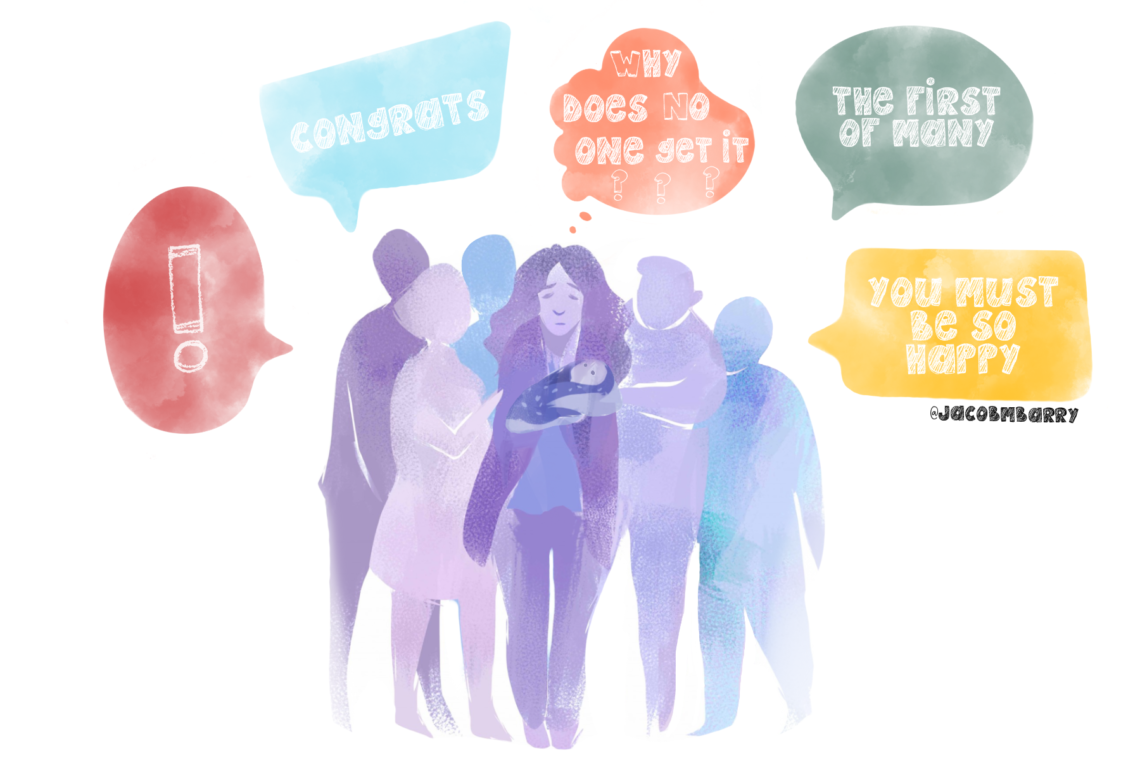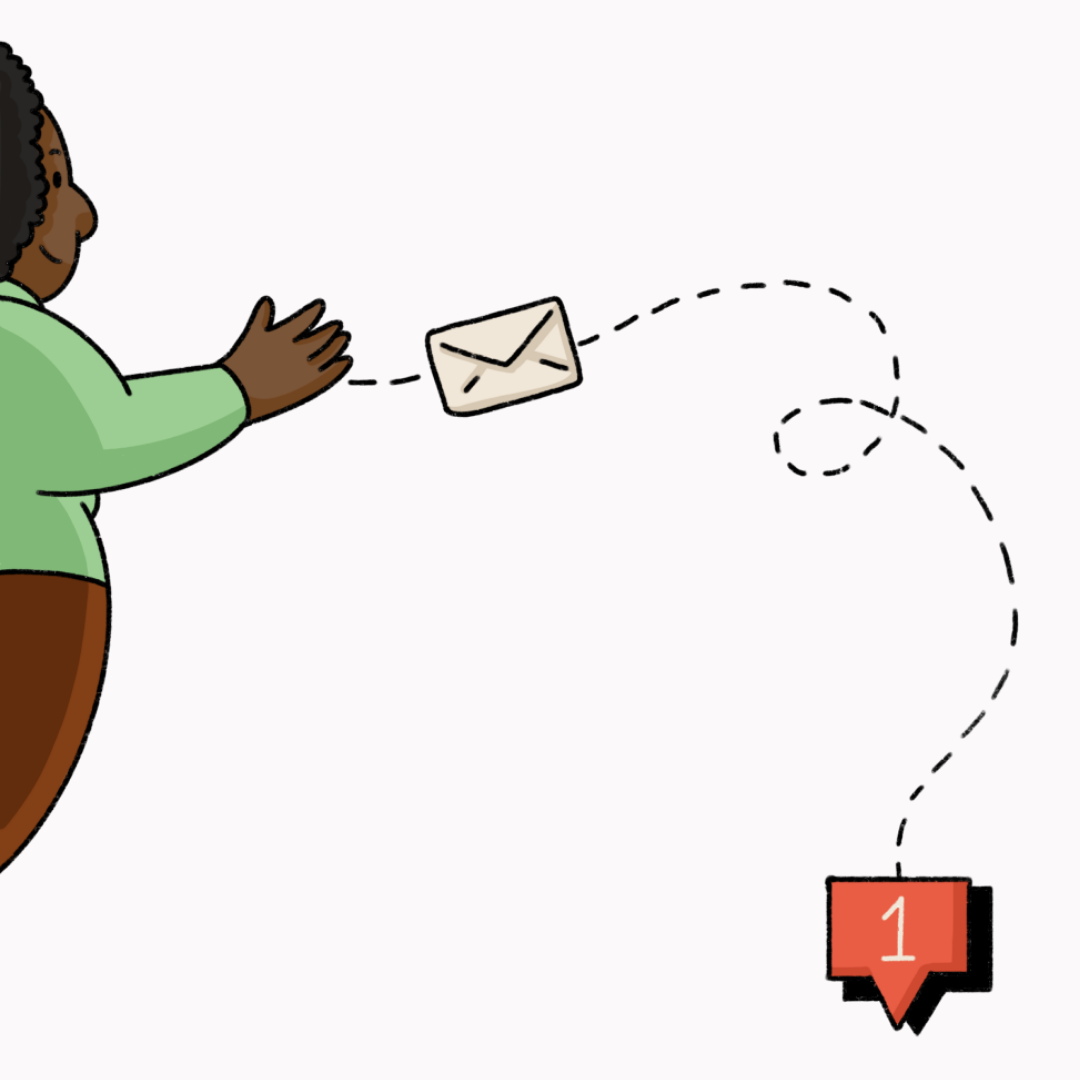Written by: Òla (she/they)
Edited by: Lydia Collins (she/her).
“You’re too young to know anything about yourself.” Said the fourth gynecologist I’d seen since formally seeking sterilization in 2017. I was on an exam table, chilly under the papery gown I was given when instructed to disrobe. I was doing my very best not to cry.
Through my experiences, I became unavoidably aware of the plight of female sterilization.
Coming to age in a marginalized body is hard. Since my entrance into the world, I’d been navigating spaces ill equipped for my Blackness, autism, femininity and queerness. By the time I became an adult, I was convinced I couldn’t be treated more poorly by anyone than I already had. Gynecology proved me wrong.
There’s a lot of good that can be accredited to gynecology; decreasing fetal death, making childbirth safer (for white women at least), and affording us birth control to quell the beast of menstruation. However, despite the advancements in the science, it seems the most rudimentary quality of the speciality is in patient care. In spite of countries such as The US’ long history of forced sterilization on BIPOC folx (1), attempting to consent to one proved to be distressingly difficult. Children are complex little beings that require love and affection, care and resources- they deserve the world and opportunities to grow into stability and a strong sense of identity. Children are amazing… for the people who want to raise them.
Since I was a child, I knew I didn’t want children of my own. I can recall games of M.A.S.H played in blanket forts under lowlight where young girls got their first dose of fantasy. The excitement at getting the big mansion or beach house, the sporty car and hunky gent, cats, dogs and a parrot, all things I’d be excited about until my chewed on pencil landed on children. The girls around me would squeal, excited at the prospect of one day being in their mothers shoes instead of staring at them, but me? I’d frown, whisper a little prayer that this stupid game wouldn’t imitate real life. When I expressed this strong aversion to having children, the adults in my life would laugh it off, tell me when I got older I’d want some. That day never came.
Instead, I spent many waking hours (and some sleeping) afraid of becoming pregnant. Even as I came into my queerness, realizing the beauty I find in lovers does not discriminate by sex or gender, I was still confronted with the reality that partners of mine with penises had the potential to get me pregnant. This weighed heavily on me. I knew what I wanted, to be rid of my reproductive organs but clinicians spent more time spouting data at me than listening.
The viability of my womb made me a vessel. For men, for pro-natalist physicians and for an economic system that only saw what I could produce for the world (I’m looking at you, capitalism), and not how I actually wanted to participate in it.
I had additional obstacles in the way such as accessibility of services, my insurance and the enormous load of emotional labor I had to give at every appointment with every doctor only to be turned away. My breakthrough came from a popular Reddit thread for individuals like me seeking sterilization. The childfree Reddit community created a list of doctors known to sterilize childfree adults without much fanfare, and when I realized there was a doctor within 5 miles from me, I breathed a sigh of relief.
At the appointment with this physician we got to discuss the culture surrounding sterilization, particularly for AFAB’s (folx assigned female at birth), and swap horror stories on encounters we’d both had with Pro-natalist-often times religiously preoccupied people. I was so happy, I’d found the one. I was finally kissing the right frog; this grey haired man was to be my prince… until he announced his retirement. What a cruel joke, I thought. The smile that made my cheeks ache went flaccid. I walked out of his clinic with frustration and a referral in hand.
Accessing sterilization felt less likely than climbing Everest.
It didn’t help that months earlier, the Trump administration packed the supreme court with ultraconservative “pro-life” judges and abortion access was looking spotty. It felt like I was running out of time. My insurance would only pay for so many visits and as long as my partners were male, I could get pregnant. I was on birth control, the most effective one on the market, but it didn’t matter. According to research done by Guttmacher Institute, approximately 22% of pregnancies are unplanned in the US, and considering 99% of women have used some form of contraceptive aside from family planning, (2,3) it’s safe to say accidents happen.
We are socialized to have children deliberately only to be shamed into not wanting them anymore. It’s like buying a house without walking through it; the archway may seem perfect until you’re standing under it. Some people are up to the challenge and want to transverse that odd, ever evolving, ultra accountable space but I’m not one of them. There’s constant conversations about regaining our lost roots and embracing antiquity, a sentiment I can usually get behind, but it seems the area we lack this thirst for most is child rearing. Despite all the science making it clear that the more responsible, loving adults children are exposed to the better, we feel compelled to have our own piece of the pie.
If it takes a village to raise a child, then I don’t need my own to foster the growth and development of future generations. My work and time, and the grace I can afford other children because I don’t have my own is a gift in and of itself. To have children for no other reason than being able to is an issue, one we’ve seen the repercussions of time and time again.
In the age of an inevitable and rapidly growing fifth wave feminism, rape culture and its stain on society is commonly discussed; conversations about what consent actually looks like in practice is taking place now more than ever. I believe childrearing falls under very similar principals as all other endeavors involving someone’s agency and safety. If it’s not an enthusiastic and informed “yes!”, it’s an automatic “no.”
Even on my most maternal of days, ( when I’m ovulating), I’m not very interested in being a parent and that’s okay. Long over are the times where one was made to feel defective and in need of correction for not wanting to procreate. Frequently, I’m confronted with the idea of regretting not having children. Some of you may be thinking that right now, but I challenge you to ask yourself what’s worse: regretting not having children, or regretting the child you intended to raise with joy?
None of us can say with absolute certainty what or who we’ll become in some decades time. I’m not even confident in saying who I’ll be in a year’s time, but any decision made with the hopes of serving myself, and getting my needs met, is a decision worth making, and something hard to regret.
I knew all of these things about myself sitting on that exam table, being condescended by the gynecologist. Instead of begging and pleading or letting him see me become hysterical I simply thought “it will get done”. Six months later, I woke up with a sore abdomen, a catheter where the sun doesn’t shine, and intimate knowledge of how difficult it is to own a body that you’re only borrowing temporarily.
References:
1. Forced sterilization policies in the US targeted minorities and those with disabilities – and lasted into the 21st century [Internet]. Institute for Healthcare Policy & Innovation. Available from: https://ihpi.umich.edu/news/forced-sterilization-policies-us-targeted-minorities-and-those-disabilities-and-lasted-21st
2. Unintended pregnancy and abortion in northern America. Guttmacher Institute. 2022. Available from: https://www.guttmacher.org/fact-sheet/unintended-pregnancy-and-abortion-northern-america
3. Contraceptive use in the United States by demographics. Guttmacher Institute. 2020. Available from: https://www.guttmacher.org/fact-sheet/contraceptive-use-united-states



